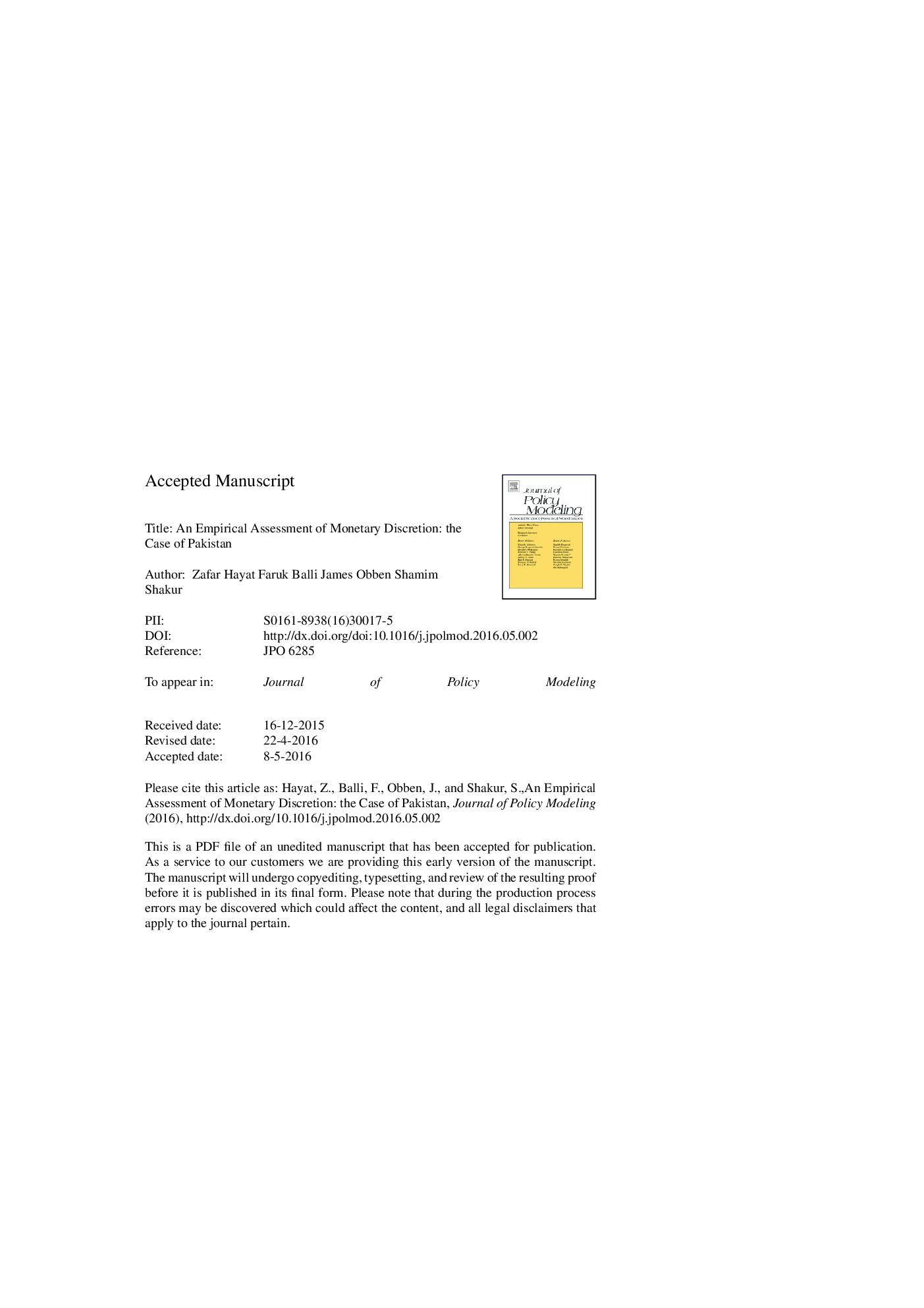| Article ID | Journal | Published Year | Pages | File Type |
|---|---|---|---|---|
| 5101714 | Journal of Policy Modeling | 2016 | 26 Pages |
Abstract
This paper empirically examines the extent to which monetary discretion induces excess inflation without offsetting real growth gains in the long and short runs both directly and indirectly. First, a framework is developed to quantify monetary discretion and the corresponding behaviors it causes in inflation and growth. Second, using Pakistan's case, which is an example of a typical discretionary monetary policy strategy, not only the direct long and short-term effects of monetary discretion on inflation and real growth but its indirect effects on the latter via inflation are ascertained. In the long run monetary discretion is significantly biased against inflation without creating real growth gains and there is no trade-off between discretion-induced inflation and real growth. The short-term direct impact of monetary discretion on inflation and real growth is mixed-both positive and negative-with varying lags; however, the gains induced by monetary discretion do not outweigh the losses it induced. Moreover, the indirect impact of monetary discretion via inflation on real growth is significantly adverse. On balance, there is nothing to gain from monetary discretion and therefore the efficacy of the policy of its active use for possible growth gains at the expense of price stability warrants re-thinking.
Related Topics
Social Sciences and Humanities
Economics, Econometrics and Finance
Economics and Econometrics
Authors
Zafar Hayat, Faruk Balli, James Obben, Shamim Shakur,
